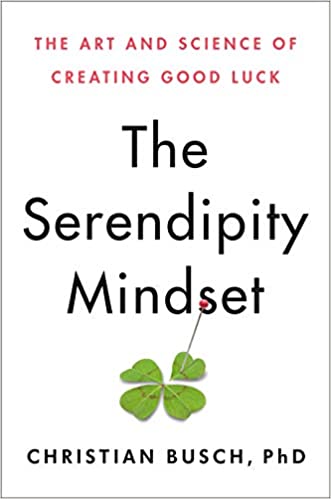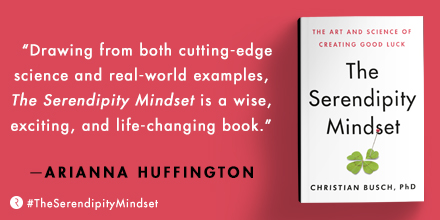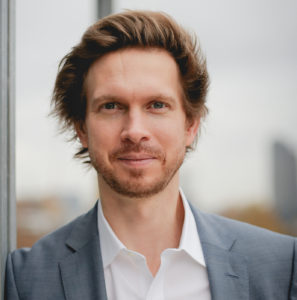By definition, we cannot know or program serendipitous outcomes, or they wouldn’t be serendipitous. But what we can do is make some of the unforeseen come to us more often and with better outcomes. It’s not only about showing up, it’s about how we show up. If you go to the gym and run into someone who could have been the love of your life but neglected to shower for a couple of days or are in a foul mood, your probability of ending up together might be lower than if you are in a better place.
And if we want a happy ending, it often depends on when we stop the story, from which (and whose) perspective we look at it, and how we feel at that moment. Then, a love relationship that ends in a breakup can still be seen to have been a “success”.
For organizations, it is vital to develop a “collective mindset,” or perhaps even a dynamic capability, that allows for the integration, building, and reconfiguring of internal and external competencies to facilitate an environment in which unexpected discoveries are enabled and nurtured. We simply cannot know what people will want or need tomorrow — and people will probably not know it themselves, either. Henry Ford, at the dawn of the motor age, was probably right when he said that if he had asked people what they wanted, they would have asked for faster horses. He offered them cars instead, and they were delighted. In organizations, we need to be aware that we cannot predict the future, and that it pays to reward those who create the conditions in which serendipity can happen.
Social and environmental problems, in particular, can be hard to disentangle, and outcomes of interventions are often impossible to predict. That means that we need to develop policies not only around what we know or pretend to know, but also around what we don’t know. We have to focus more on social opportunity spaces, and less on prescriptive ideas, which means investing in basic science and training for serendipity mindsets. Inspiring minds can attract criticism for sending the message that individuals themselves can change their circumstances. Instead, the critics argue, we need “systems change.” But guess what? Behind systemic change, there are usually individuals, often from unexpected places.
Waiting for government to fix every problem means submitting to a passive mindset. As long as we keep in mind that there are systemic problems, and that we cannot kid ourselves that small changes can help tackle the real problems, there is much to be said for living life as if it is rigged in our favor, whatever our background. Developing structural resilience, social mobility, and innovation in the twenty-first century is not about trying to plan everything. The best we can do is to set ourselves and others up to create conditions that make the best out of whatever might happen. Serendipity becomes a powerful mechanism for unleashing human potential. As Joe Kaeser, CEO of Siemens, shared with our Leaders on Purpose team, “The future is uncertain. It’s pretty fast in the way it changes, so we’ve got to create an adaptive mindset. And this adaptability is actually the right element to foster change actively.” But of course, cultivating serendipity is not a panacea. There are structural dynamics, particularly related to power structures, that make it easier for some than for others to develop this mindset and the related serendipity field, and to benefit from the outcomes. The lottery of birth does not distribute access to wealth, education, and skills equally, and there are complex structural issues such as poverty that are and will always be difficult to overcome.
However, across social strata and cultural contexts, cultivating serendipity can be an effective path to escape the confines of “destiny” and create our own luck by setting ourselves up for success. For educational institutions — and parents, for that matter — supporting children in their development of a serendipity mindset and a related serendipity field will be at the core of producing a generation able to navigate an uncertain world. This mindset and skillset will set us apart from robots. It’s no longer about merely teaching knowledge, it’s about learning how to be in a world that makes us different from machines.
I certainly do not have all the answers. Serendipity has been much discussed but little studied, and the embryonic research that has been done is scattered across many different disciplines. I have tried to integrate wherever possible and used analogous thinking for areas where we do not yet have much evidence. I don’t make many causal claims, and we need to experiment — there is much to be learned, and this book is not without its own challenges. Had I written it ten years ago or ten years from now, my sense-making process would probably have been very different. I would interpret my own story differently in light of my interest and my feelings at that time. It’s quite literally survivor bias (and a number of others, including confirmation bias). But for now, this is the best I can do, and I am looking forward to seeing this as a journey of learning and cocreation with you.
I hope that this book is just the start of a journey and, perhaps, a movement. I’m looking forward to joining you on your own personal serendipity journey. To me, this book has been a wonderful excuse to question many of my own beliefs and biases (of which there are many) and to rethink things such as success and what I take for granted.
For the future, we might want to ask whether there are any emotional, physical, or mental “fundamentals” without which we can’t cultivate serendipity. Can people specialize? How much can we rely on a serendipity mindset, and to what degree will we need other forms of learning and discovery that are more “predictable”?




